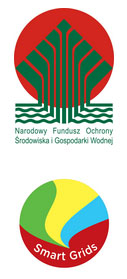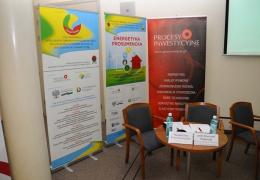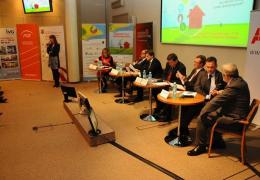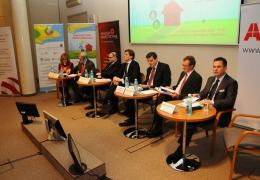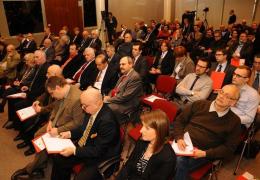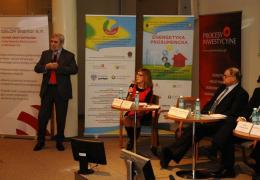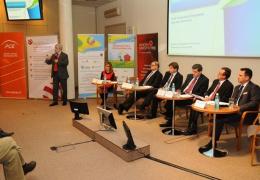Invitation for a debate
Prosumer energy generation – what does it mean for end consumers and distribution companies?
28 February 2013 (Thursday), 11.00 am,
Seat of Polityka , ul. Słupecka 6, Warsaw
In Poland prosumer energy generation is mentioned mostly in the context of renewable energy sources. According to Energy Policy for Poland till 2030 adopted by the Polish government, RES shall constitute 20% of total energy produced domestically. It has been estimated that prosumers shall have ca. 10% of share, while in certain regions it can be considerably higher. Market participants will decide for themselves if they wish to buy energy from the network or if they wish to produce it by themselves. One of the main conditions for development of energy sector in the world, Europe and hence also in Poland is shifting energy production to more local, dispersed units, managed by active energy users – prosumers. Particular role will play micro renewable sources. One should stress that numerous companies dealing with energy reach out to meet those new demands by offering end consumers means for investments in mirco-renewable sources, despite the fact that the current system does not differentiate sources according to type or size. New solutions and mechanisms proposed by the Ministry of Economy in the draft of RES Act shall simplify and offer support to micro-installations.
Prosumer energy is not only based on RES and CHP – home energy and heat production units. In Europe also this sector receives support (Germany, Holland, Great Britain). Prosumer energy generation shall reshape the current energy system, in which the end consumer will play an active part. It constitutes the main pillar of low-emission economy, mostly thanks to the support it offers to increase energy efficiency. In the conventional system, based on large scale sources, 1 out of 10 operates only to cover up for network losses. Prosumer solutions eliminate this problem since energy is being produced in the same place where it is being used. The Energy Regulatory Office asserts that in 2015 a new model of network regulation will be ready for implementation as a result of which distribution companies will need to encompass dispersed energy production, including the prosumer option. It is also crucial to simultaneously liberalize the whole energy market, particularly in the segment of household consumers.
The prosumer model is connected with development of smart grid and intelligent metering. Solutions of this kind shall enable prosumers to properly measure generated, used, purchased and sold electric energy. From the point of view of trading companies one of the main premises to implement smart metering is abandonment of the old-fashioned settlement model based on forecasting. It should be replaced with a new model based on remote and current metering of usage that can vary within the day, week and year. Subsequently, trading companies shall offer new deals to their customers.
It is necessary to launch nation-wide and large scale Program for Prosumer Energy Generation Development which should encompass five main fields: legislation (removing legal obstacles and offering opportunities), technology (development of domestic potential), logistics (development of services and installation supply base), information (development of consultative and information support) and finance (implementation of support mechanisms). In the draft of RES Act conditions necessary for development of prosumer energy generation have already been fulfilled; they include respectively - implementation of a simplified system for small prosumers, idea of the net tariff, pico- and micro-sources as well as simplification of environmental and construction conditions. In other words – the ground for prosumer energy generation development is ready.
Speakers invited to take part in the debate include:
- Janusz Pilitowski, Director of the Renewable Energy Department, Ministry of Economy
- Marek Woszczyk, President of Energy Regulatory Office
- Henryk Majchrzak, PhD, President of the Management Board, PSE
- Tomasz Wolanowski, Commercial Director ABB
- Michał Dudziak, Director-Genaral, Schüco International Polska
- Andrzej Szymański, Chairman of the Board, Landis+Gyr
- prof. Krzysztof Żmijewski, Secretary General of the Public Board for Development of Low-Emission Economy
We would be delighted if you could join us.
Participation in the debate is free of charge. In order to take part in the debate please sent a filled-in form till the 25th February 2013. Please mind that the number of seats is limited and participation needs to be confirmed. Confirmation of participation will be sent by email. Participation applications shall be sent to zgloszenia@proinwestycje.pl
Debate organized with support of the National Fund for Environmental Protection and Water Management, within the framework of priority program ‘Ecological education’
